Take steps to prevent Hasina from making provocative statements, Yunus tells Modi
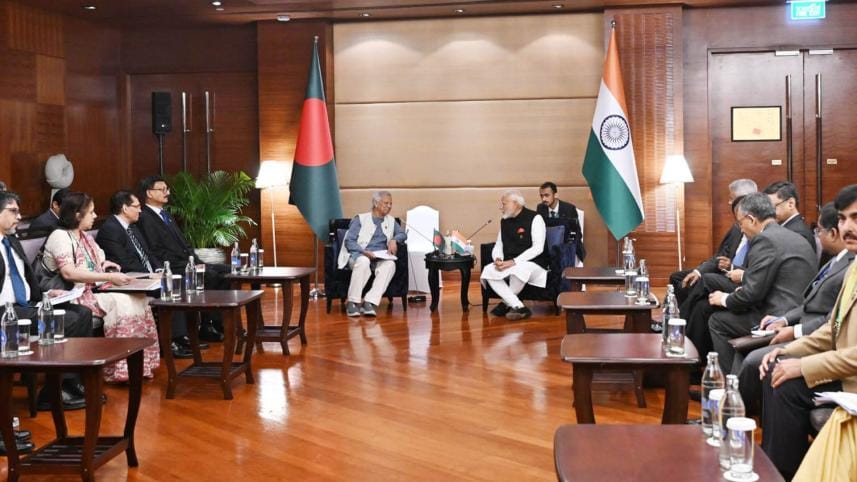
Chief Adviser Prof Muhammad Yunus today told Indian Prime Minister Narendra Modi that the former prime minister (Sheikh Hasina) had been making inflammatory remarks in various media outlets and attempting to destabilise the situation in Bangladesh, which seemed to be an abuse of the hospitality India has extended to her.
"She [Hasina] has consistently made false and inflammatory accusations against the interim government of Bangladesh," Yunus told Modi.
"We request that the government of India take appropriate measures to restrain her from continuing to make such incendiary statements while she remains in your country," he said, according to a statement issued by the CA's press wing.
This was the first bilateral meeting between the two leaders since the fall of Hasina-led government through a mass uprising on August 5.
Yunus enquired about the status of Bangladesh's request for the extradition of Hasina, which remains pending with the Indian government.
The CA also referenced the UN Human Rights Office's Fact-Finding Report, which confirmed serious human rights violations and abuses committed by security forces and armed Awami League activists between July 15 and August 5, 2024.
He said the report estimated that 1,400 protest-related deaths occurred, with approximately 13 percent of the victims being children. He stated the report also found reasonable grounds to believe that crimes against humanity, such as murder, torture, and other inhumane acts, were committed during the protests.
The UN report notes that Hasina herself had ordered security forces to kill protesters and specifically instructed them to "arrest the ringleaders, kill them, and hide their bodies."
In response, Indian PM blamed social media for the tensions around Sheikh Hasina's remarks. He said India's attachment is with a country, not with any individuals or political organisations.
Yunus also raised the issue of border killings and stressed the need for working together to reduce the number of fatalities. It would not only save many families great anguish but would also help to build trust and confidence and to strengthen the relationship between India and Bangladesh, he said.
"I always felt the pain when these killings happen," Yunus said, urging India to find "ways and means" to prevent the incidents.
Modi said Indian border troops opened fire only in self-defence and the fatalities occurred in Indian territories. The two leaders stressed the need to work together on this issue.
The leaders of these two major South Asian countries greeted each other with mutual respect and a shared openness for dialogue. Their 40-minute exchange was candid, productive, and constructive.
"Bangladesh deeply values its relationship with India," said Yunus.
"The deep-rooted friendship between our two countries is founded on intertwined histories, geographical proximity, and cultural affinity. We remain thankful for the unwavering support of the government and people of India during our most challenging time in 1971," he added.



 For all latest news, follow The Daily Star's Google News channel.
For all latest news, follow The Daily Star's Google News channel. 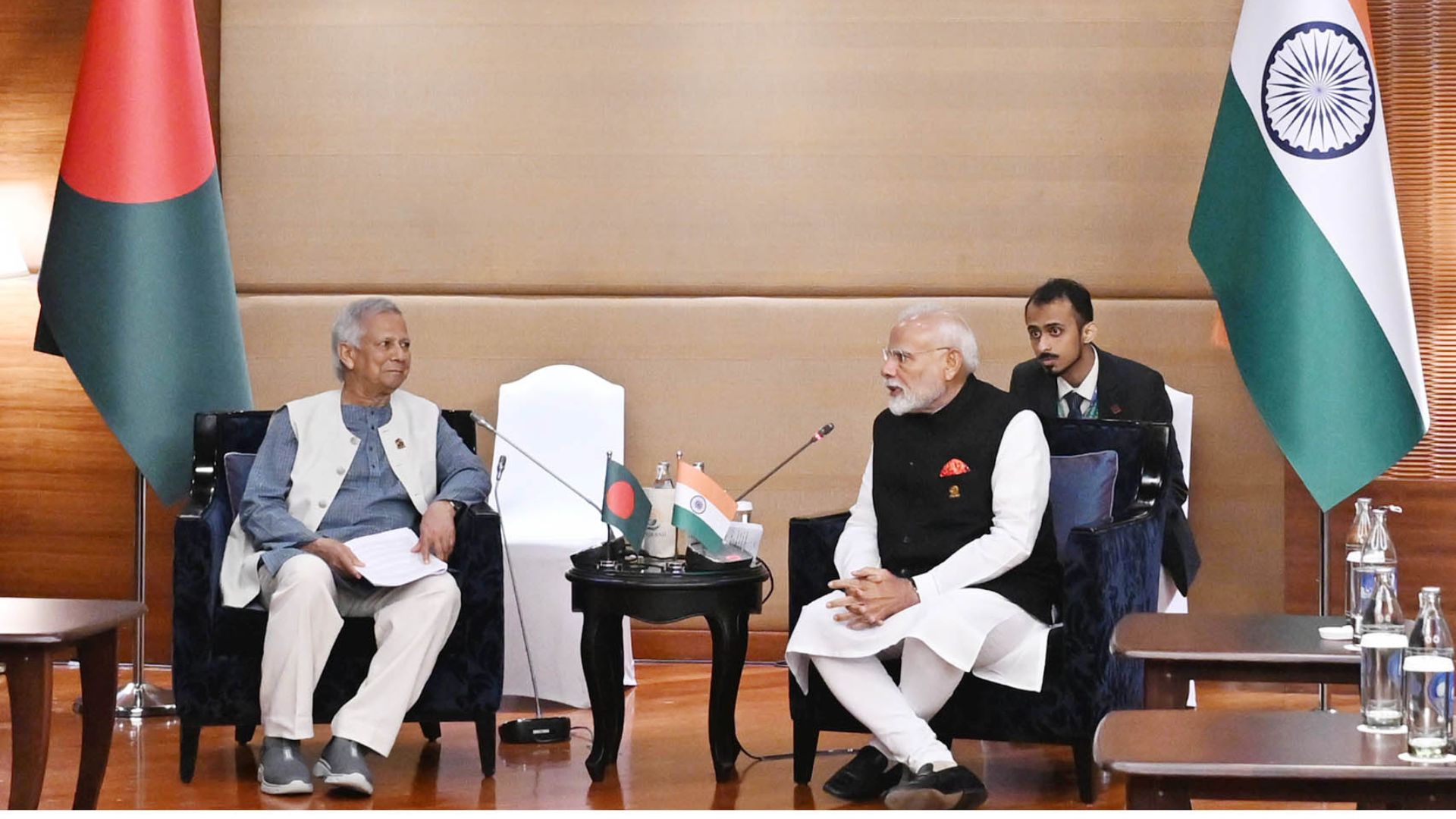
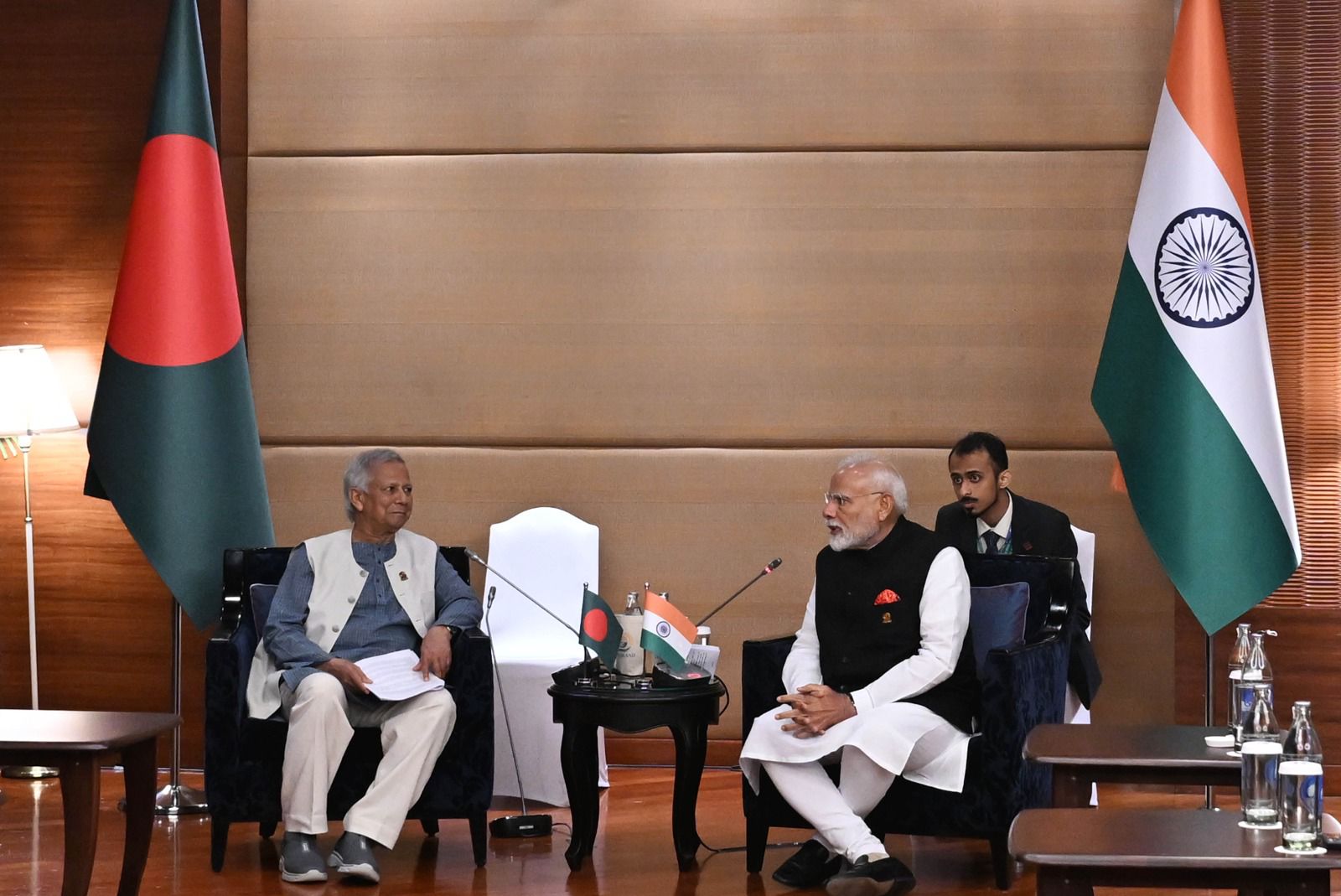
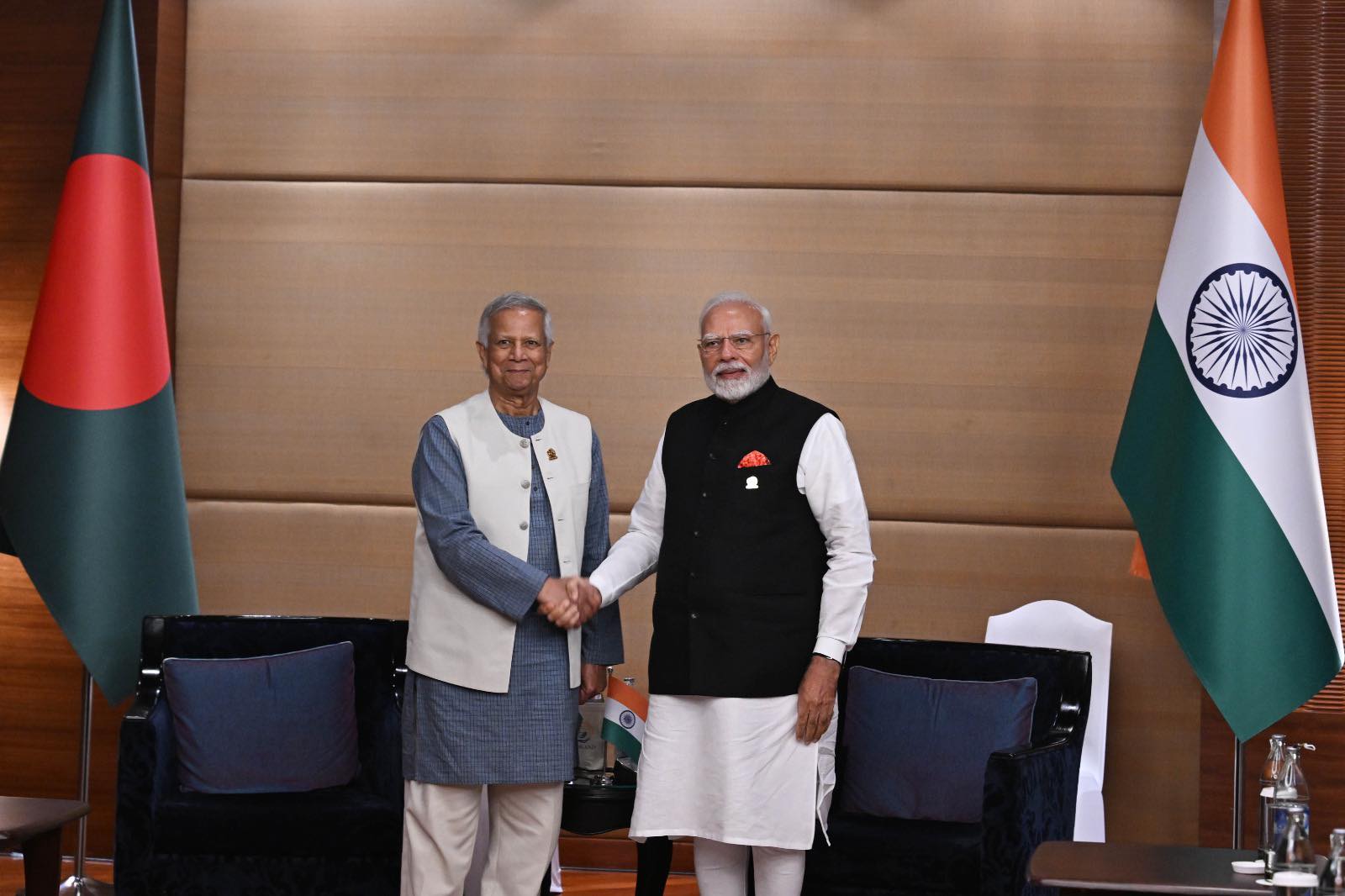
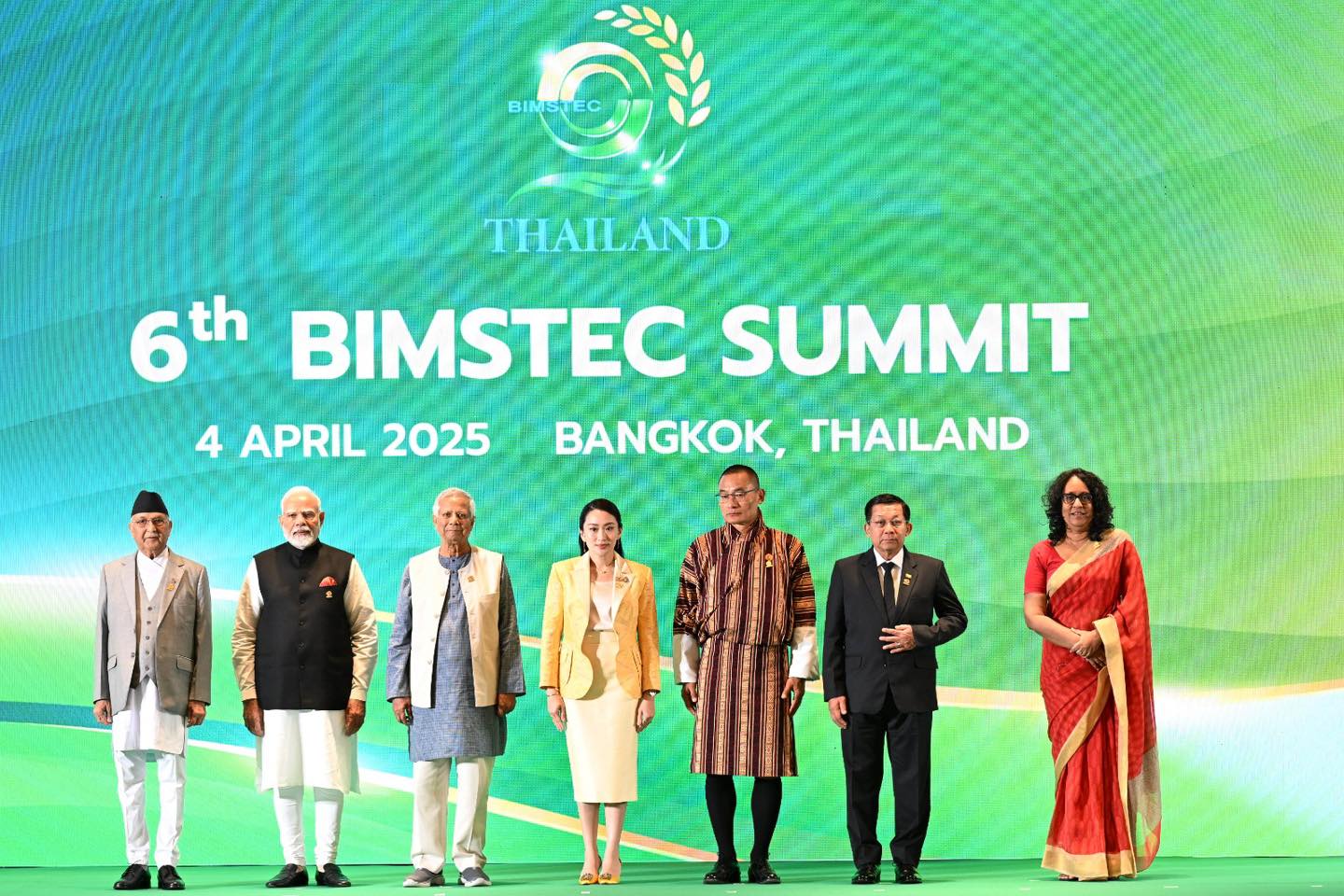
Comments